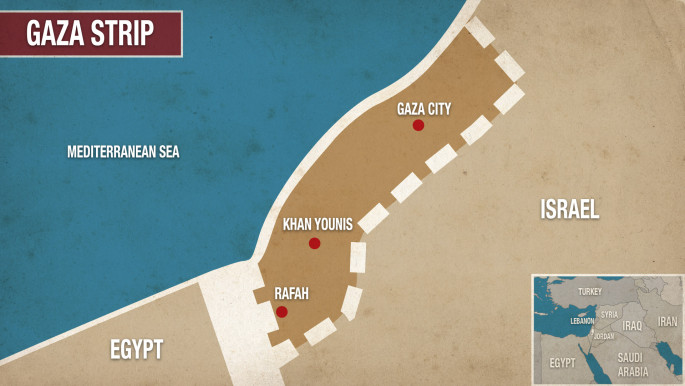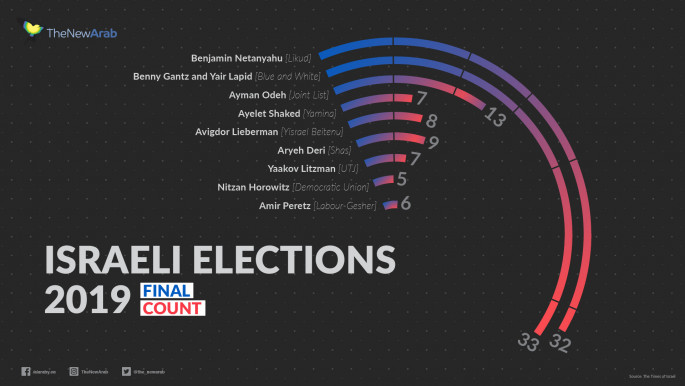Israel threatens to launch 'major military operation' on Gaza after spike in tensions
Israeli Energy Minister and security cabinet member Yuval Steinitz said on Sunday that such a military operation would precede Israel reaching of an agreement, Haaretz reported.
"We hoped to reach an agreement before a large military operation, and as it seems right now, we may have to set out on a big army operation and only then reach an agreement," Steinitz said in a radio interview.
"If there is no choice and we want to destroy the Hamas regime, it will have to be a ground operation, and this comes at a price," he said.
Steinitz's comments followed Israel carrying out retaliatory strikes on Gaza on Saturday, killing a Palestinian and wounding two others, following two nights of rocket attacks that were the first since September.
Hamas, the Islamist group who runs Gaza, denounced a "serious escalation" and said Israel will be held "responsible for the consequences" of the raids.
 |
Dozens of pre-dawn strikes targeted Hamas bases and those of allied militant groups, a Gaza security source said.
The Israeli army said the strikes targeted "a wide range of Hamas terror targets", including a naval base, a military compound and a weapons manufacturing plant.
The Hamas-run health ministry identified the person killed as Ahmed al-Shehri, 27.
It did not say whether he was affiliated with any armed group. Two other Palestinians were seriously wounded, the ministry said.
Hundreds of Palestinians attended Shehri's funeral on Saturday in the southern Gaza Strip, an AFP correspondent said.
A Hamas source said it had fired at the Israeli aircraft carrying out the raids and the Israeli military confirmed fresh "incoming fire".
"The Zionist enemy bears full responsibility for the consequences," of the pre-dawn air raids, Hamas spokesman Fawzi Barhoum said in a statement.
He said the strikes targeted "innocent civilians" and represented a "serious escalation".
Sworn enemies
The strikes came after at least ten rockets were fired from Gaza at southern Israel late on Friday, causing damage but no casualties.
The Israeli military said eight of the rockets were intercepted by air defences. Air raid sirens sounded in Israeli communities near the border.
Read more: For many displaced families in Gaza, war is never over
One family's house was hit, without causing any casualties, the army said, posting a picture of damage to a building on Twitter.
It was the second consecutive evening that the army reported rocket fire from Gaza, shattering a calm that had lasted since 12 September.
In August, a spate of rocket attacks, retaliatory airstrikes and clashes along the border had raised fears of an escalation as a general election approached in Israel.
 |
| [Click to enlarge] |
Those polls - Israel's second general election this year - took place on 17 September, but have yet to yield a new government.
Sworn enemies Israel and Hamas have fought three wars in the Palestinian enclave since 2008.
Crippling blockade
There have been repeated bouts of violence between Hamas and Israel over the past year as the Islamists have sought to improve on the terms of a UN- and Egyptian-brokered truce first hammered out in November last year.
In return for Hamas silencing the rockets, Israel agreed a package of measures to ease the crippling blockade it has imposed on Gaza for more than a decade.
They included allowing in millions of dollars in aid from Hamas ally Qatar to pay for fuel for the territory's sole power station as well as cash for salaries and grants to tens of thousands of needy families.
The truce has also seen Israel expand the distance it allows Gaza fishermen out into the Mediterranean - although Israel reduces it or even cuts it to zero in response to violence from the enclave.
The concessions authorised by Prime Minister Benjamin Netanyahu have been criticised by his opponents, including by his challenger for the premiership, centrist former military chief Benny Gantz.
Gantz called a renewal of the truce agreed by Netanyahu in May "capitulation to blackmail".
Read more: Palestinian's form of resistance and steadfastness continues to grow stronger
The Palestinians have also pressed on with weekly demonstrations along the Gaza-Israel border first launched in March last year.
The protests have frequently drawn live fire from Israeli forces stationed along the heavily fortified border fence. More than 310 Palestinian have been killed by Israeli fire in Gaza since the protests began.
More than 90 Palestinians were wounded in this Friday's demonstrations, the health ministry said.
 |
Follow us on Twitter: @The_NewArab





 Follow the Middle East's top stories in English at The New Arab on Google News
Follow the Middle East's top stories in English at The New Arab on Google News


